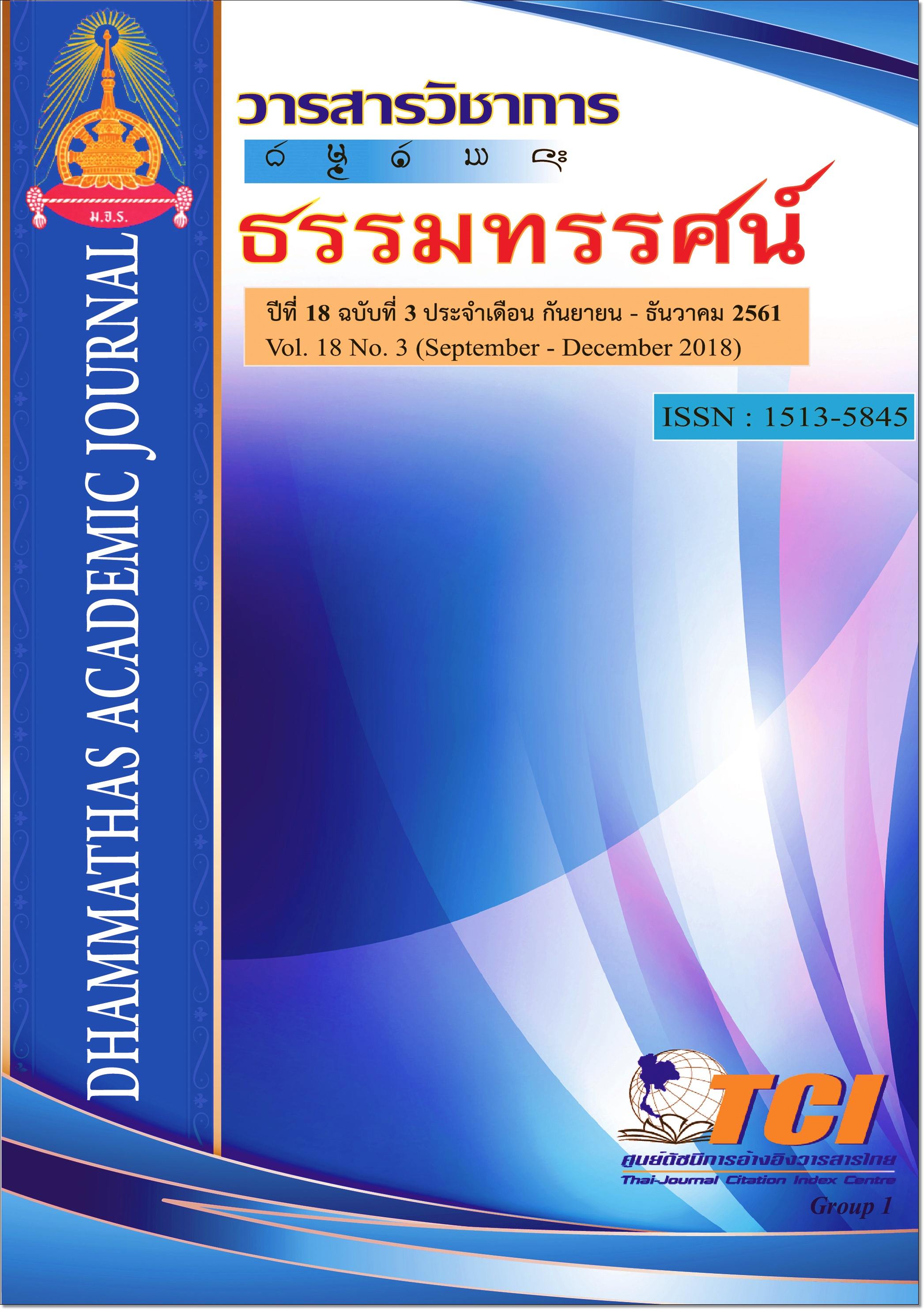The Application of Aparihaniyadhamma Principle to Conserve Community Forests of People in Nakhon Ratchasima Province
Main Article Content
Abstract
This research paper that is a qualitative research were to study the conservation of community forests and to explain Aparihaniyadhamma principle in the practice of forest preservation of people in Nakhon Ratchasima Province. Samples who were key informants consisted of a director of Forest Department, a community leader, one member of the Local Government Council, a folk scholar, an outstanding community forest preservation villager, and 30 villagers who concerned to the community forest conservation. The research instrument was the unstructured-interview form. The analysis of the data was content analysis and conclusion.
The research findings were revealed that: context of community for the conservation of forest consisted of laying out a rule in using some benefits from the forest, and setting up a forest community guardian unit. For a community forest overlapping with government forest that is a national park, the community had no authority in making a rule to protect the forest, but there was a Buddhist monastery to have a role in conservation to protect the forest within the area of monastery. From this operation of forest conservation of community could be explained and synthesized with Aparihaniyadhamma principle: holding regular and frequent meetings, meeting together in harmony, respecting to a rule of community, honoring and respecting the elders, not under the power of lust, honoring and worshiping the shrines, and sharing public benefits.

